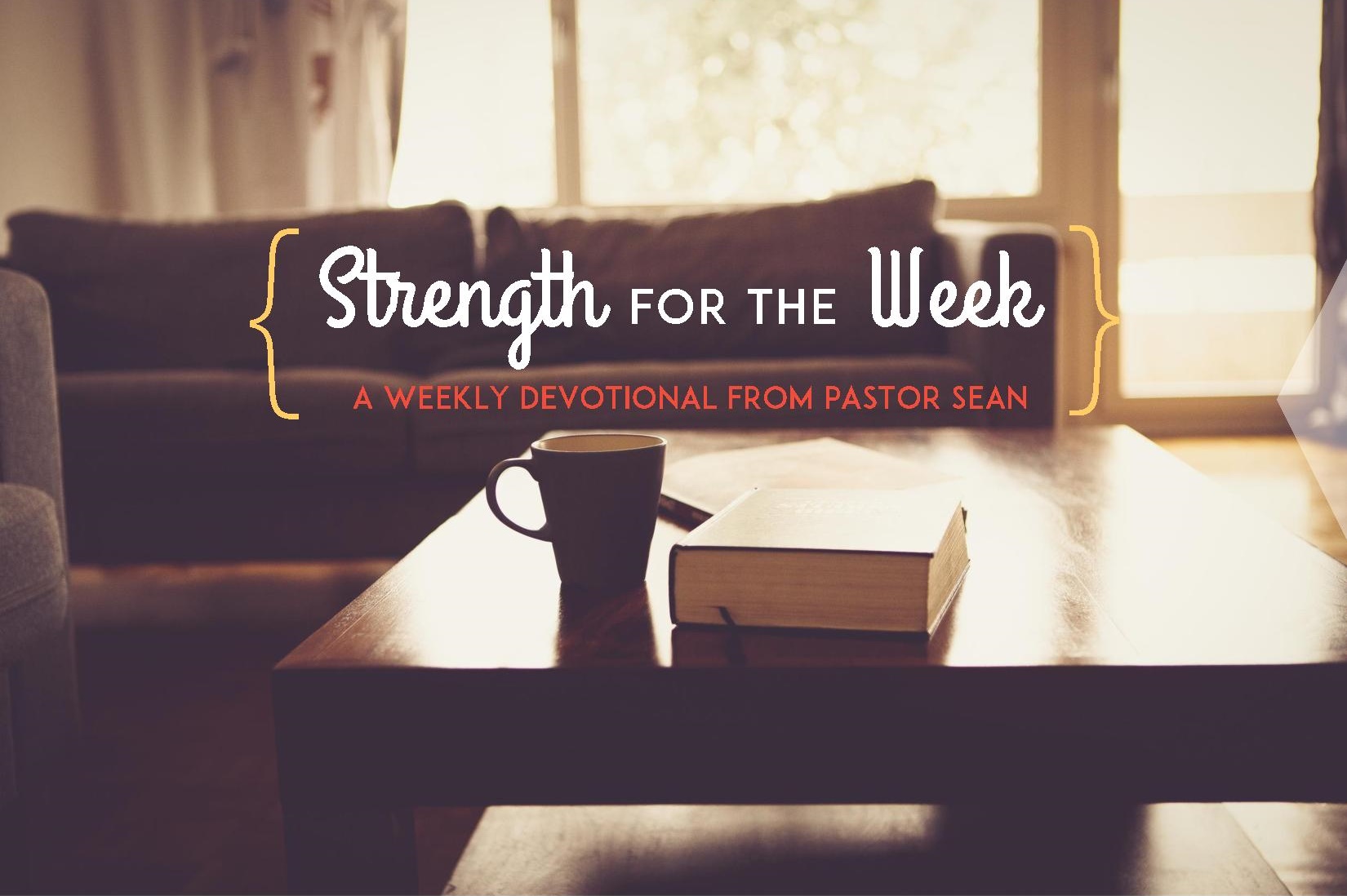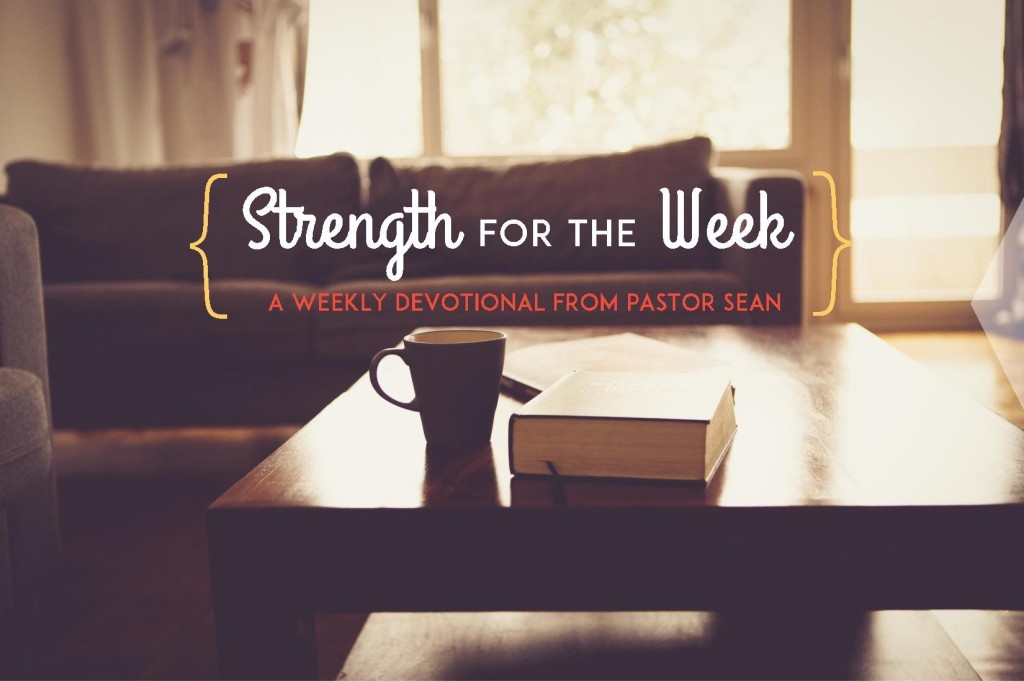Strength for the Week: Flood Church’s Weekly Devotional
Series 1: The Voice of God
A Wounding Voice
“Peter was hurt because Jesus asked him a third time, “Do you love me?”” (John 21:17)
There are four kinds of hurt. The first is accidental hurt, like when you bump into something sharp and injure yourself or when someone steps on your toes on a crowded bus. This kind of hurt is largely caused by ignorance of the sort that has unintended consequences. They honestly meant the comment as a joke, but it stung you like an insult, so they hurt you because they simply didn’t know your sensitivities or how badly timed the comment was. It can be physical, emotional, or psychological, but there are such things as hurts by accident, and had the people who hurt you known better ahead of time, they would likely have chosen a different course. Generally, if the person who hurt us by accident says sorry and assures us they did it ignorantly, we are able to dust ourselves off and carry on towards recovery without bitterness.
The second kind of hurt is a different matter: malicious hurt. This is the sort of injury we suffer at the hands of someone who meant to hurt us to leave us worse off than before. Some people find it hard to believe that malicious intent exists in this world, but we must not hide from reality. Malicious hurt is the sort that is motivated by vengeance, like deliberately breaking your little sibling’s pencil because he called you a “loser”; or the sort of hurt sparked by jealousy, like spreading rumors about how loose the new girl at work is simply because she got more attention from the guys in one week than you’ve gotten in years; or the kind of hurt fueled by ambition, like telling your boss about the professional shortfalls of a colleague he likes for reasons you can’t understand, instead of talking to the colleague directly. Malicious hurt may even start off as accidental hurt, but if the person who caused the accident fails or refuses to say sorry, the accident quickly turns into malice. Generally, when we are on the receiving end of malicious hurt, we are able (if we are mature enough) to recognize that the hurt, however passive or aggressive, says more about what’s wrong with those hurting us than it does about what is wrong with us. As such, we endure it and pray for the well being of our enemies.
But the third kind of hurt is the most difficult to come to terms with. It is benevolent hurt. This is a good hurt, or a loving hurt. It is the hurt a parent inflicts on children by subjecting them to an unpleasant chore or limitation to mould respect. It is the hurt a coach inflicts on a team by subjecting them to hours of running in the hot sun to mould endurance. It is the hurt a friend inflicts on another by subjecting them to a sharp rebuke to mould faithfulness. Without benevolent hurts or pains inflicted by loving hands for lovely ends, nothing lovable would grow in our lives. Still, we find this kind of hurt difficult to understand because it is always inflicted on purpose, which makes it feel like malicious hurt. We find it hard to believe, for instance, that there is a goodness in Jesus that must hurt us by subjecting us to a word, or a question, or a circumstance that painfully reveals what we really look to for our sense of what we are worth. The hurt Jesus inflicts exposes the false idols we look to to make us feel acceptable and worthy of God’s attention. That idol can be our ability to live up to his expectations of us; or our ability to live up to our own expectations of ourselves for his honor; or our ability to get him to live up to our expectations of him; or our ability to get others to live up to our expectations of them; or our ability to live up to others’ expectations of us. Whatever it is, Jesus has no mercy or patience for our idols, and when he starts smashing them apart, he does so in a way that spares our souls, not our feelings.
In fact, the back end of a personal failure is one of Jesus’ favorite times to take his scalpel and pierce us with hurtful surgical cuts that go down deep under our skin. This is because failure leaves us with no illusions about ourselves or our ability to make ourselves worthy of God’s attention. It is at the point of falling short of God’s standards that it hurts to be asked whether we really love him or not. It is at the point of that hurt that Jesus restores our realization that His unconditional presence in our lives is God’s act of giving us his full attention, not because we love him enough to please him as he deserves, but because he loves us, even enough to hurt us. We can embrace the temporary wounds he inflicts, for they come from loving hands that forever bear the marks of a fourth kind of wounding, a punitive hurt he suffered so that we never have to, a kind of hurt to which all others pale in comparison. So whenever you find yourself being hurt by Jesus while following him, remember that pain is not only what true love suffers to rescue us from our false identities, but also what true love feels like when it is creating our true identities.
Keep the Faith


3 Comments
Like wow. Awesone timely word.
Great piece pastor. I like the third kind coz it produces a better us. though it not easy passing through It. just got such a hurt last week which meant being embarrased in front of a class. It hasnt been an easy week though but I got my lessons and I beleive a better me is coming out.
Really helpful in seeking the Lords face. So many obstacles in my life that I am in need of the benevolent hurt to produce spiritual growth.
Thanks Pastor Sean.